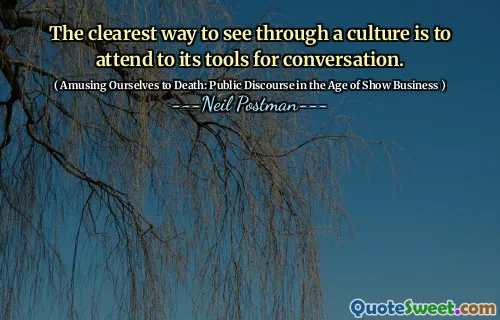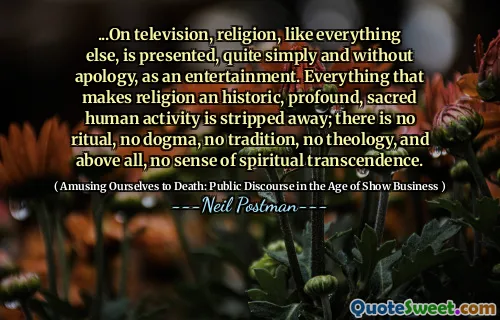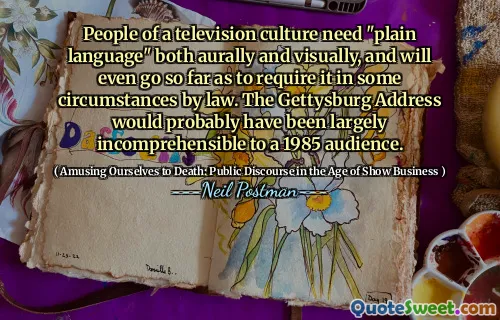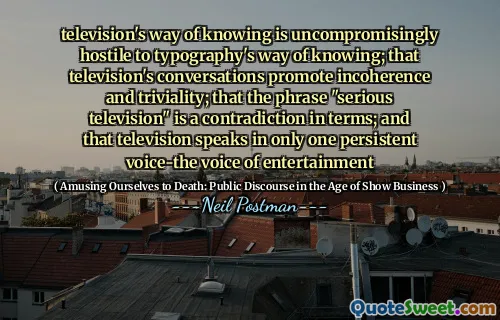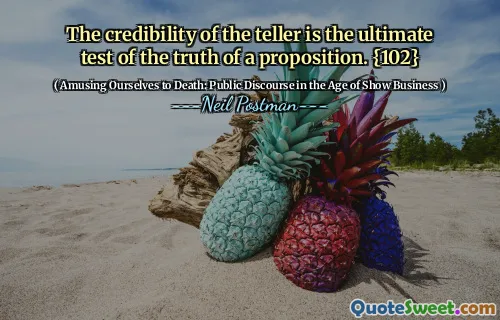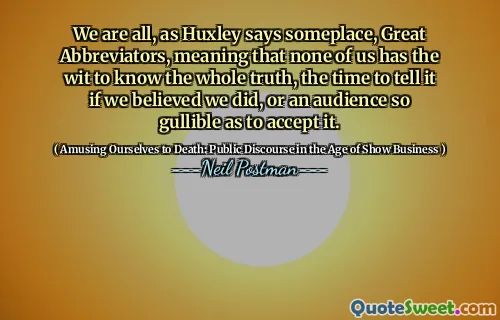
People of a television culture need "plain language" both aurally and visually, and will even go so far as to require it in some circumstances by law. The Gettysburg Address would probably have been largely incomprehensible to a 1985 audience.
In the modern era dominated by television, audiences have developed a preference for straightforward and clear communication, both in spoken language and visual representations. This shift has led to a societal expectation for simplicity and accessibility in information, to the extent that regulations may be necessary to ensure this clarity. The complexities of historical language, like that of the Gettysburg Address, may leave contemporary viewers confused and disconnected, highlighting the evolution of public discourse influenced by media.
Neil Postman's "Amusing Ourselves to Death" examines how the entertainment-driven nature of television shapes our understanding and processing of public communication. As a result, the richness and nuance of traditional rhetoric can become lost in translation, making it challenging for modern audiences to grasp deeper meanings in more sophisticated or historical texts. The book critiques this decline in complexity, urging a reconsideration of how we engage with words and ideas in an age that favors amusement over substance.
